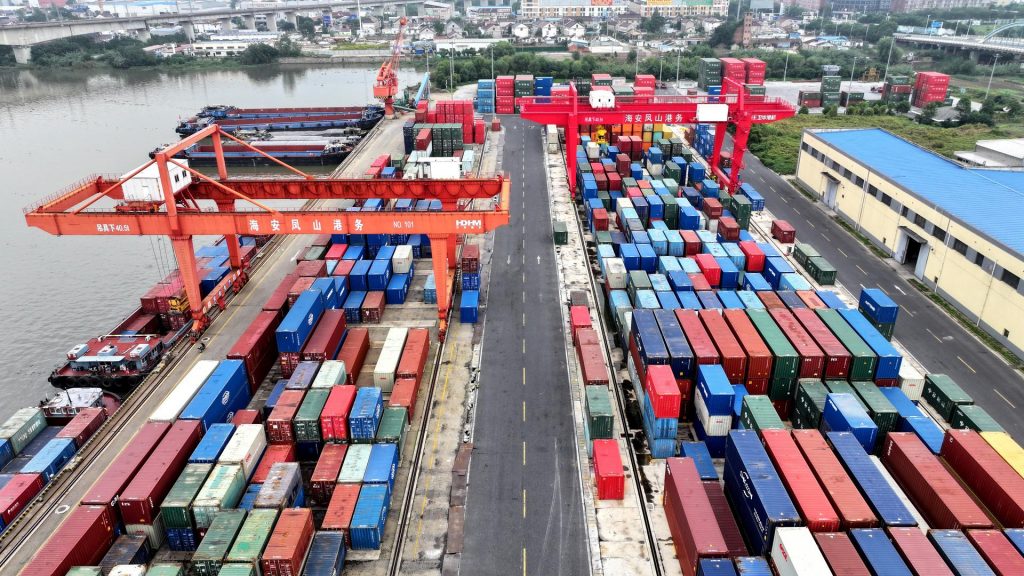US, Saudi Arabia, others stop proposed global fee on shipping emissions

The U.S. successfully blocked the passage of a deal that would’ve established internationally mandated emission reduction targets in the shipping industry. American leadership felt the deal would’ve raised prices for consumers due to projected fees that fleet owners said could reach hundreds of billions of dollars annually.
Deal blocked
The International Maritime Organization (IMO) got the IMO Net-Zero Framework approved in April after 10 years of negotiations. The goal was to reduce fossil fuel usage in the shipping industry and limit emissions. Shipping represents 3% of all global emissions.
President Donald Trump, Saudi Arabia and several other countries sought to end the deal over costs.
During a meeting on Friday, Saudi Arabia called a vote to adjourn the meeting for one year. More than half the countries agreed, including several that had originally been in favor of the deal.
That included island nations like the Bahamas and Antigua. They told the BBC they rely on the U.S. for trade and received pressure from the Trump administration to change their vote.
Trump threatened tariffs, the withdrawal of visa rights and more against countries that voted in favor of the deal. The president made his feelings about it clear on social media Thursday.
“The United States will NOT stand for this Global Green New Scam Tax on Shipping, and will not adhere to it in any way, shape, or form,” Trump wrote. “We will not tolerate increased prices on American Consumers OR, the creation of a Green New Scam Bureaucracy to spend YOUR money on their Green dreams.”
Reaction to the vote
Those in support of the deal seemed determined to get it back on track, even if it takes a year.
“What matters now is that countries rise up and come back to the IMO with a louder and more confident ‘yes’ vote that cannot be silenced,” Anaïs Rios, shipping policy officer for Seas At Risk, said. “The planet and the future of shipping does not have time to waste.”
One supporter also seemed hopeful about keeping the deal alive, even as she blamed the U.S.
“The delay leaves the shipping sector drifting in uncertainty,” Alison Shaw, IMO Manager at Transport & Environment, a Brussels-based environmental nongovernmental organization, said. “But this week has also shown that there is a clear desire to clean up the shipping industry, even in the face of U.S. bullying.”
Back stateside, U.S. Secretary of State Marco Rubio celebrated the decision.
“This is another HUGE win for @POTUS,” Rubio wrote on X. “Thanks to his leadership, the United States prevented a massive UN tax hike on American consumers that would have funded progressive climate pet projects. Our country will continue to lead the way and put America FIRST.”
IMO Net-Zero Framework
The goal of the measure was to get the shipping industry to net-zero greenhouse gas emissions by roughly 2050. The way they planned on getting there was to set a marine fuel standard that would get stricter over time.
The deal would also set fees for emissions above the allowed limits. In essence, it would be a tax on countries that break the rules.
It would have made shipping the first industry to adopt internationally mandated targets to reduce emissions.
According to recent data, Greece, which also voted against the deal, is the country with the highest emissions from global shipping. It’s followed by Japan and the U.S.
The cost
The Mediterranean Shipping Company (MSC) led the market for shipping companies in total imports to the U.S. in 2024. That’s followed by Maersk Line and Compagnie Maritime d’Affretement, or CMA.
MSC is a privately held company, so its revenue is unclear, but the other two brought in a combined $99.58 billion last year.
Despite that, Trump and other administration officials were concerned that added costs from a tax would be passed on to American consumers at a time when inflation is already an issue.
The fees associated with the proposal, according to a conglomerate of shipping companies, would have cost them an estimated $20 to $30 billion annually by 2030. They said in a letter to the IMO that the cost would increase to $300 billion by 2050 if global fleets missed the targets by only 10%, according to industry site GCaptain.com.
Prices have gone up across the country, in part due to Trump’s ongoing trade wars from tariffs.
The post US, Saudi Arabia, others stop proposed global fee on shipping emissions appeared first on Straight Arrow News.





